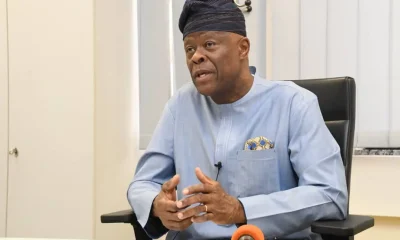EDUCATION
The government urges stakeholders to address the 74% rate of illiteracy among youth and adults.

The federal government has engaged key stakeholders in the education sector to address the urgent need to reduce the over 74 percent illiteracy rate among youth and adults in the country.
Minister of State for Education, Dr. Yusuf Sununu, expressed concern that such a significant portion of young and adult Nigerians cannot read or write. He emphasized that in today’s rapidly changing, knowledge-based society, acquiring basic literacy skills and advancing them throughout life is crucial for national development.
Dr. Sununu pointed out that no country has achieved sustained and rapid economic growth without at least 40 percent of its adult population being literate, and emphasized that literacy is a fundamental right and the foundation for lifelong learning.
He called on all state ministries of education and policy implementers to prioritize adult and non-formal education in budget allocations, which is essential for addressing the challenges facing the sector. He also urged the State Universal Basic Education Boards (SUBEBs) to collaborate with state agencies, highlighting that such partnerships are crucial for addressing issues of adult and youth illiteracy and the problem of out-of-school children.
Dr. Sununu stated that education is a shared responsibility, but assured that the ministry would continue to build on existing progress and transform adult and non-formal education. This approach, he noted, is the only alternative to provide flexible and efficient programs for underserved communities, promoting relevant learning outcomes for all learners in an ever-changing environment.
Executive Secretary of the National Commission for Mass Literacy, Adult and Non-Formal Education (NMEC), Prof. Akpama Ibor, emphasized that youth and adult illiteracy are major contributors to the issue of out-of-school children in the country. He noted that the high illiteracy rate, at 74 percent, persists due to insufficient support from key stakeholders, especially the private sector, in government efforts to combat this issue.
Prof. Ibor added that the government alone cannot address all educational challenges; the private sector and development partners must also demonstrate greater commitment to the education of both children and adults. He highlighted that policies and strategies undermining NMEC’s efforts to eradicate youth and adult illiteracy have hindered progress in addressing the out-of-school children issue in Nigeria.
He underscored the importance of collective action in ensuring that every youth and adult has the opportunity to achieve literacy, which is not just the ability to read and write but the foundation for a better future. Literacy empowers individuals, strengthens communities, and promotes sustainable development.
Prof. Ibor also mentioned that the roadmap for the Nigerian education sector includes a strategic framework to directly address literacy challenges. He called for leveraging diverse expertise and resources to create inclusive and effective educational programs that ensure all Nigerian children, youth, and adults have access to quality education.




















You must be logged in to post a comment Login